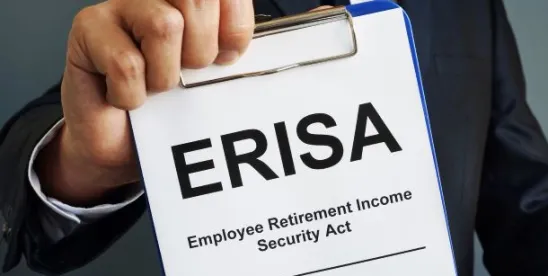In Hawkins, et al. v. Cintas Corp., No. 21-3156, __ F.4d __ (2022), plaintiffs brought a class action pursuant to Section 502(a)(2) of the Employee Retirement Income Security Act (ERISA), alleging that their former employer and other fiduciaries breached the fiduciary duties owed to the plan. The employer moved to compel arbitration, arguing that the claims must be arbitrated pursuant to the arbitration provisions in employment agreements signed by plaintiffs. The district court denied the employer’s motion to compel arbitration.
On appeal, the Sixth Circuit affirmed, acknowledging that this case presented issues of first impression. According to the Court:
-
The Sixth Circuit has not yet determined whether ERISA claims are subject to arbitration, but all circuit courts that have considered the issue have held that ERISA claims are generally arbitrable. Nonetheless, because the parties’ failed to argue that ERISA claims could not be arbitrated, the court declined to specifically address that issue.
-
The arbitration agreements—to which only plaintiffs are bound—did not compel arbitration of the Section 502(a)(2) fiduciary breach claims because the claims belong to the plan.
-
Arbitration of these Section 502(a)(2) claims cannot be compelled without the plan’s consent. Plan participants cannot unilaterally bind the plan to an arbitration in the absence of an arbitration provision in the plan or some other manifestation of the plan’s consent to arbitrate. In this case, nothing indicated that the plan consented to arbitration. The court rejected the employer’s argument that it, being the plan sponsor, could consent to arbitration on its behalf.
Hawkins demonstrates the scrutiny placed upon arbitration of ERISA claims. Although employees may have signed a broad arbitration agreement, that does not necessarily mean that certain ERISA claims are subject to arbitration. Employers wanting to ensure that ERISA claims brought on the plan’s behalf are subject to arbitration should review their plan documentation to make sure that it sufficiently manifests the plan’s consent to arbitrate.







 />i
/>i

